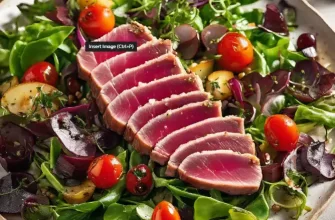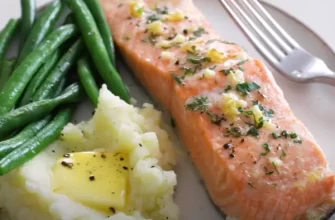Losing weight can be a difficult task, especially if you have specific health issues to take into account. For women with goiter, which is a condition where the thyroid gland is enlarged, it is important to adhere to a diet that promotes overall well-being and also addresses the requirements of the thyroid.
Before starting any weight loss program, it is important to seek advice from a healthcare professional, such as a registered dietitian or endocrinologist, who can create a personalized plan based on your specific requirements. The following are some general recommendations that can assist women with goiter in developing a safe and nutritious weight loss diet.
General Diet Tips
- Focus on Proper Nutrition: Maintaining a healthy thyroid function requires a well-rounded eating plan that includes a range of nourishing foods, such as fresh fruits, vegetables, whole grains, lean proteins, and healthy fats. These nutrient-packed foods supply important vitamins, minerals, and antioxidants that are crucial for sustaining thyroid health.
- Monitor Iodine Intake: Iodine is an essential mineral required for thyroid hormone production. However, in cases of goiter, excessive iodine intake can exacerbate the condition. It is essential to monitor and moderate your iodine consumption. Avoid or limit foods high in iodine, such as seaweed, iodized salt, and processed foods containing iodized salt. Consult your healthcare professional for personalized guidance on adequate iodine intake.
- Eat Foods Rich in Selenium: Selenium is a vital mineral that helps maintain a healthy thyroid. It is important to incorporate foods rich in selenium into your diet, such as Brazil nuts, fish, eggs, chicken, and whole grains. Selenium plays a role in controlling the production and conversion of thyroid hormones, which contributes to the overall functioning of the thyroid gland.
- Limit Goitrogenic Foods: Goitrogens are substances that can interfere with thyroid hormone production and utilization. While these foods are generally safe to consume in moderation, women with goiter should limit their intake. Some common goitrogenic foods include cruciferous vegetables (cabbage, broccoli, cauliflower), soy products, peanuts, strawberries, and peaches. Cooking these foods can help reduce their goitrogenic effects.
- Optimize Macronutrient Ratios: A balanced distribution of macronutrients is essential for overall health and sustainable weight loss. Focus on consuming adequate amounts of carbohydrates, protein, and healthy fats. Aim for a well-rounded plate consisting of whole grains, lean protein sources (chicken, fish, legumes), and healthy fats (olive oil, avocados, nuts).
- Stay Hydrated: Proper hydration is vital for overall health, including supporting thyroid function. Drink an adequate amount of water throughout the day and minimize the consumption of sugary beverages and excessive caffeine, as they can interfere with thyroid health.
- Incorporate Physical Activity: Alongside a healthy diet, regular physical activity is crucial for weight loss. Engage in activities such as brisk walking, swimming, cycling, or strength training. It is always wise to consult with a healthcare professional before starting any exercise regimen.
Keep in mind that it is important to lose weight slowly, with a target of 1-2 pounds per week. Losing weight too quickly can have a negative effect on both your thyroid function and your overall well-being. It is crucial to be patient and maintain a consistent approach to your diet and lifestyle changes.
Example of a week-long goiter diet for those wishing to lose weight
Monday:
Breakfast:
- Two boiled eggs
- Whole-grain toast
- Freshly squeezed orange juice
Lunch:
- Spinach and grilled chicken salad with tomatoes, cucumbers, and lemon dressing
- A side of steamed broccoli
Snack:
- A handful of mixed nuts (almonds, walnuts, and cashews)
Dinner:
- Grilled salmon with garlic and herbs
- Quinoa or brown rice
- Roasted Brussels sprouts
Tuesday:
Breakfast:
- Greek yogurt with berries and a drizzle of honey
- Whole-grain cereal or granola for added crunch
Lunch:
- Quinoa and black bean salad with diced vegetables and lime dressing
- A side of mixed greens
Snack:
- A small apple or carrot sticks with hummus
Dinner:
- Grilled turkey breast
- Steamed asparagus
- Baked sweet potato wedges
Wednesday:
Breakfast:
- Oatmeal topped with sliced bananas and a sprinkle of cinnamon
- Green tea
Lunch:
- Baked chicken breast
- Mixed vegetable stir-fry (broccoli, bell peppers, snow peas)
- Brown rice
Snack:
- Celery sticks with almond butter
Dinner:
- Baked cod fillet
- Quinoa salad with roasted vegetables
- Sautéed kale
Thursday:
Breakfast:
- Veggie omelet with spinach, tomatoes, and mushrooms
- Whole-grain toast
Lunch:
- Lentil and vegetable soup
- Side salad with mixed greens and olive oil dressing
Snack:
- Low-fat cottage cheese with sliced berries
Dinner:
- Grilled chicken with lemon and herbs
- Steamed green beans
- Bulgur or couscous
Friday:
Breakfast:
- Protein smoothie with almond milk, spinach, banana, and a scoop of plant-based protein powder
- Whole-grain crackers
Lunch:
- Grilled shrimp skewers
- Quinoa tabbouleh
- Whole-grain pita bread
Snack:
- Unsweetened Greek yogurt with a sprinkle of cinnamon
Dinner:
- Baked tofu with stir-fried vegetables (bell peppers, broccoli, carrots)
- Brown rice or soba noodles
Saturday and Sunday:
Use the previous days’ meal plans as inspiration, mix and match the different dishes according to your preference, aiming for a balanced diet with lean proteins, whole grains, ample fruits and vegetables, and healthy fats.
Conclusion
A safe and healthy weight loss diet for women with goiter focuses on proper nutrition, monitoring iodine intake, eating selenium-rich foods, limiting goitrogenic foods, optimizing macronutrient ratios, staying hydrated, and incorporating physical activity. Consulting with a healthcare professional is essential for personalized guidance and support throughout your weight loss journey.









